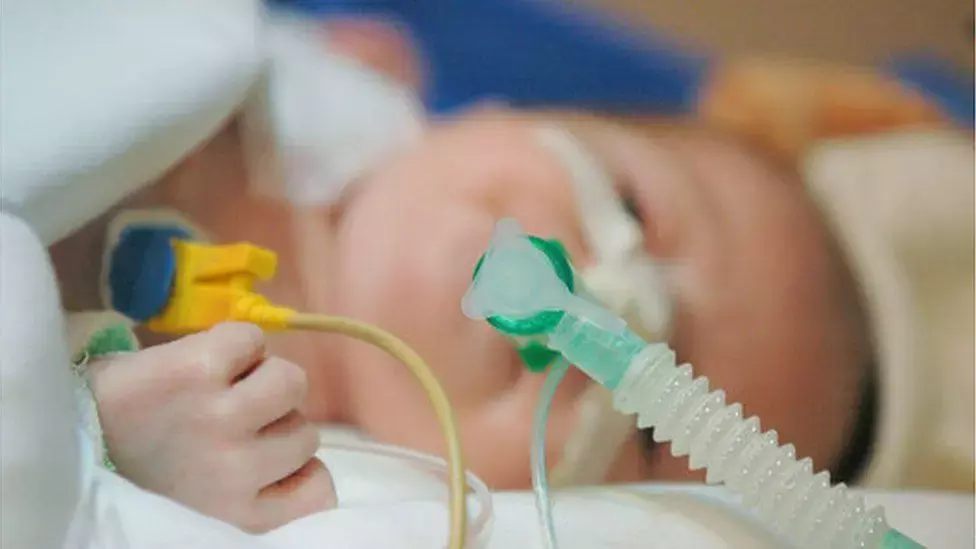- Home
- Medical news & Guidelines
- Anesthesiology
- Cardiology and CTVS
- Critical Care
- Dentistry
- Dermatology
- Diabetes and Endocrinology
- ENT
- Gastroenterology
- Medicine
- Nephrology
- Neurology
- Obstretics-Gynaecology
- Oncology
- Ophthalmology
- Orthopaedics
- Pediatrics-Neonatology
- Psychiatry
- Pulmonology
- Radiology
- Surgery
- Urology
- Laboratory Medicine
- Diet
- Nursing
- Paramedical
- Physiotherapy
- Health news
- Fact Check
- Bone Health Fact Check
- Brain Health Fact Check
- Cancer Related Fact Check
- Child Care Fact Check
- Dental and oral health fact check
- Diabetes and metabolic health fact check
- Diet and Nutrition Fact Check
- Eye and ENT Care Fact Check
- Fitness fact check
- Gut health fact check
- Heart health fact check
- Kidney health fact check
- Medical education fact check
- Men's health fact check
- Respiratory fact check
- Skin and hair care fact check
- Vaccine and Immunization fact check
- Women's health fact check
- AYUSH
- State News
- Andaman and Nicobar Islands
- Andhra Pradesh
- Arunachal Pradesh
- Assam
- Bihar
- Chandigarh
- Chattisgarh
- Dadra and Nagar Haveli
- Daman and Diu
- Delhi
- Goa
- Gujarat
- Haryana
- Himachal Pradesh
- Jammu & Kashmir
- Jharkhand
- Karnataka
- Kerala
- Ladakh
- Lakshadweep
- Madhya Pradesh
- Maharashtra
- Manipur
- Meghalaya
- Mizoram
- Nagaland
- Odisha
- Puducherry
- Punjab
- Rajasthan
- Sikkim
- Tamil Nadu
- Telangana
- Tripura
- Uttar Pradesh
- Uttrakhand
- West Bengal
- Medical Education
- Industry
Nasal High-Flow therapy Ups Intubation Success in First Attempt Among Neonates

Opportunities for clinicians to become proficient in neonatal intubation have decreased over time. However, in a recent study, researchers reported that the likelihood of successful intubation on the first attempt without physiological instability in the infant was higher with high-flow therapy than with standard care. The study findings were published in the New England Journal of Medicine on April 28, 2022.
Neonatal endotracheal intubation often involves more than one attempt, and oxygen desaturation is common. The benefit of high-flow therapy during intubation in neonates, who often undergo intubation urgently and who frequently have underlying lung disease remain understudied. Therefore, Dr Kate A. Hodgson and her team conducted a study to assess whether high-flow therapy during oral neonatal endotracheal intubation improves the likelihood of successful intubation on the first attempt without physiological instability in the infant.
In this randomized, controlled study, the researchers assessed the outcomes of 251 intubations in 202 infants; 124 intubations were assigned to the high-flow group and 127 to the standard-care group. randomization of intubations to the high-flow group or the standard-care group was stratified according to trial centre, the use of premedication for intubation (yes or no), and postmenstrual age of the infant (≤28 or >28 weeks). The major outcome assessed was successful intubation on the first attempt without physiological instability (defined as an absolute decrease in the peripheral oxygen saturation of >20% from the pre-intubation baseline level or bradycardia with a heart rate of <100 beats per minute) in the infant.
Key findings of the study:
- Upon analysis, the researchers found that the successful intubation on the first attempt without physiological instability was achieved in 62 of 124 intubations (50.0%) in the high-flow group and 40 of 127 intubations (31.5%) in the standard care group (adjusted risk difference, 17.6 %), for a number needed to treat of 6 for 1 infant to benefit.
- They noted that the successful intubation on the first attempt regardless of physiological stability was accomplished in 68.5% of the intubations in the high-flow group and 54.3% of the intubations in the standard-care group (adjusted risk difference, 15.8%).
The authors concluded, "Among infants undergoing endotracheal intubation at two Australian tertiary neonatal intensive care units, nasal high-flow therapy during the procedure improved the likelihood of successful intubation on the first attempt without physiological instability in the infant."
For further information:
Medical Dialogues Bureau consists of a team of passionate medical/scientific writers, led by doctors and healthcare researchers. Our team efforts to bring you updated and timely news about the important happenings of the medical and healthcare sector. Our editorial team can be reached at editorial@medicaldialogues.in.
Dr Kamal Kant Kohli-MBBS, DTCD- a chest specialist with more than 30 years of practice and a flair for writing clinical articles, Dr Kamal Kant Kohli joined Medical Dialogues as a Chief Editor of Medical News. Besides writing articles, as an editor, he proofreads and verifies all the medical content published on Medical Dialogues including those coming from journals, studies,medical conferences,guidelines etc. Email: drkohli@medicaldialogues.in. Contact no. 011-43720751


